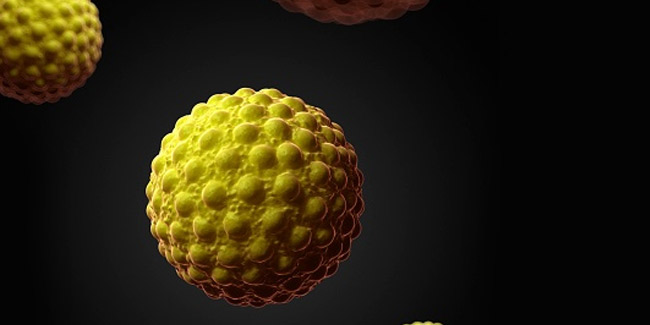
Hepatitis A is a viral liver ailment that can lead to mild and severe sickness. Do you know that you can prevent this disease from spreading? You just have to take care of a few things. The virus of hepatitis A, also known as HAV is spread through the quaff of
Table of Content:-
- contaminated food
- poor sanitation
- unhygienic conditions
- contaminated water
- direct contact with the affected person
However, it is seen that almost every patient recovers completely from hepatitis A with a lasting immunity. However, very few people infected with hepatitis A can die from fiery hepatitis. In the year 2016, according to the World Health Organization, deaths caused by hepatitis A were more than 7000.
People with HAV infection become contagious early in the incubation period and can start spreading the infection even before they develop symptoms. A person remains contagious for about 7-8 days after developing jaundice (that is yellow discolouration of the skin or eyes).
Some of the common Hepatitis A causes are given below

- HAV infection is most commonly transmitted from one person to other by the faecal-oral route. That is it spreads through food or water contaminated with the faeces of an affected person. So if you eat something (food or water) that has been contaminated with the faeces of an affected person, you can get infected with HAV.
- Poor sanitation is the commonest cause of spread or outbreak of HAV infection. Hygiene measures such as hand washing, safe drinking water and improved sanitation can help to prevent infection with hepatitis A virus.
- HAV infection can spread by eating raw fruits and vegetables (especially those you can’t peel), washed with contaminated water and raw or undercooked shellfish from water that has been contaminated by sewage.
- Rarely hepatitis A virus can be transmitted by blood transfusions.
Hepatitis A symptoms you need to be aware of
Hepatitis A (HAV) is usually a mild infection and many people with HAV infection may not have any symptoms. HAV infection is more likely to be symptomatic in older people and young children. Infected people who do not develop symptoms can also transmit infection to others. Symptoms of hepatitis A usually develop about 4 weeks after infection (can range from 2 to 6 weeks).
The most common Hepatitis A symptoms are as follows
Also Read: Here’s Everything You Need To Know About Hysteria
- Nausea and vomiting
- Diarrhoea, (more common in children)
- Fever usually low grade
- Loss of appetite
- Rash
Tiredness and fatigue
- Jaundice (skin and the whites of the eyes appear yellow)
- Dark coloured urine (dark yellow, brownish in colour, like cola or strong tea)
- Pain in abdomen (in the region of liver that is on the right side, just below the rib cage)
If you have frequent or recurrent vomiting, dehydration may occur. Some of the symptoms of dehydration are:
- Feeling weak, tired, or lethargic
- Difficulty in concentration
- Rapid heartbeat
- Feeling very thirsty
- Decrease in frequency of urination
- Irritability
- Headache
Symptoms of HAV infection usually last less than two months, but can continue for months (as long as nine months). According to some studies, in 15% people, symptoms of HAV infection come and go for 6-9 months. Most people with HAV infection recover without treatment.
Also Read: World Brain Day 2019: Tips To Manage Stressed Induced Migraine
Hepatitis A treatment
Currently there are no specific medicines for the treatment of infection with hepatitis A. Infection with hepatitis A virus is mostly a self-limiting disease in most people and just symptomatic treatment is needed.
Symptomatic treatment
- Your doctor will advise you to take plenty of oral fluids. If you are not able to retain oral fluids due to frequent vomiting, you may be given IV fluid to help you feel better
- Medications to treat nausea and vomiting are given if they are significant or troublesome
- Fever reducing medications (acetaminophen can be harmful to the liver. Do not take medications to reduce fever without consulting your doctor)
- Most people with HAV infection after diagnosis can be cared for at home. If the symptoms are severe (such as dehydration, confusion, or difficult to stay awake), then admission to a hospital for treatment will be needed.
Immunoglobulin
For people exposed to someone with HAV infection, treatment with a medication called immune globulin may prevent the infection. Treatment with immunoglobulin is most likely to be effective if administered within 2 weeks of exposure.
Follow-up
After the acute symptoms resolve it is important to follow your doctor’s recommendations for further care and successful hepatitis A treatment. These include:
- Getting adequate rest
- Taking plenty of clear fluids
- Eating healthy and nutritious diet
- Avoid alcoholic beverages
- Not taking medicines without consulting your doctor (over-the-counter medications such as acetaminophen can also be harmful to the liver)
- Avoiding strenuous physical exercise until your symptoms improve
Consult your doctor any time you notice hepatitis A symptoms.
Health Tips
- Hepatitis A is a virus found in the stool of people with hepatitis HAV infection
- Hepatitis A (HAV) is usually a mild infection
- Symptoms of HAV infection usually last less than two months
- HAV infection is most commonly transmitted from one person to other by the faecal-oral route
Read more on Other Diseases
Read Next
World Hepatitis Day 2019: Prevent Hepatitis B With These Simple Steps, Says Dr Poonam Sachdeva
How we keep this article up to date:
We work with experts and keep a close eye on the latest in health and wellness. Whenever there is a new research or helpful information, we update our articles with accurate and useful advice.
Current Version
